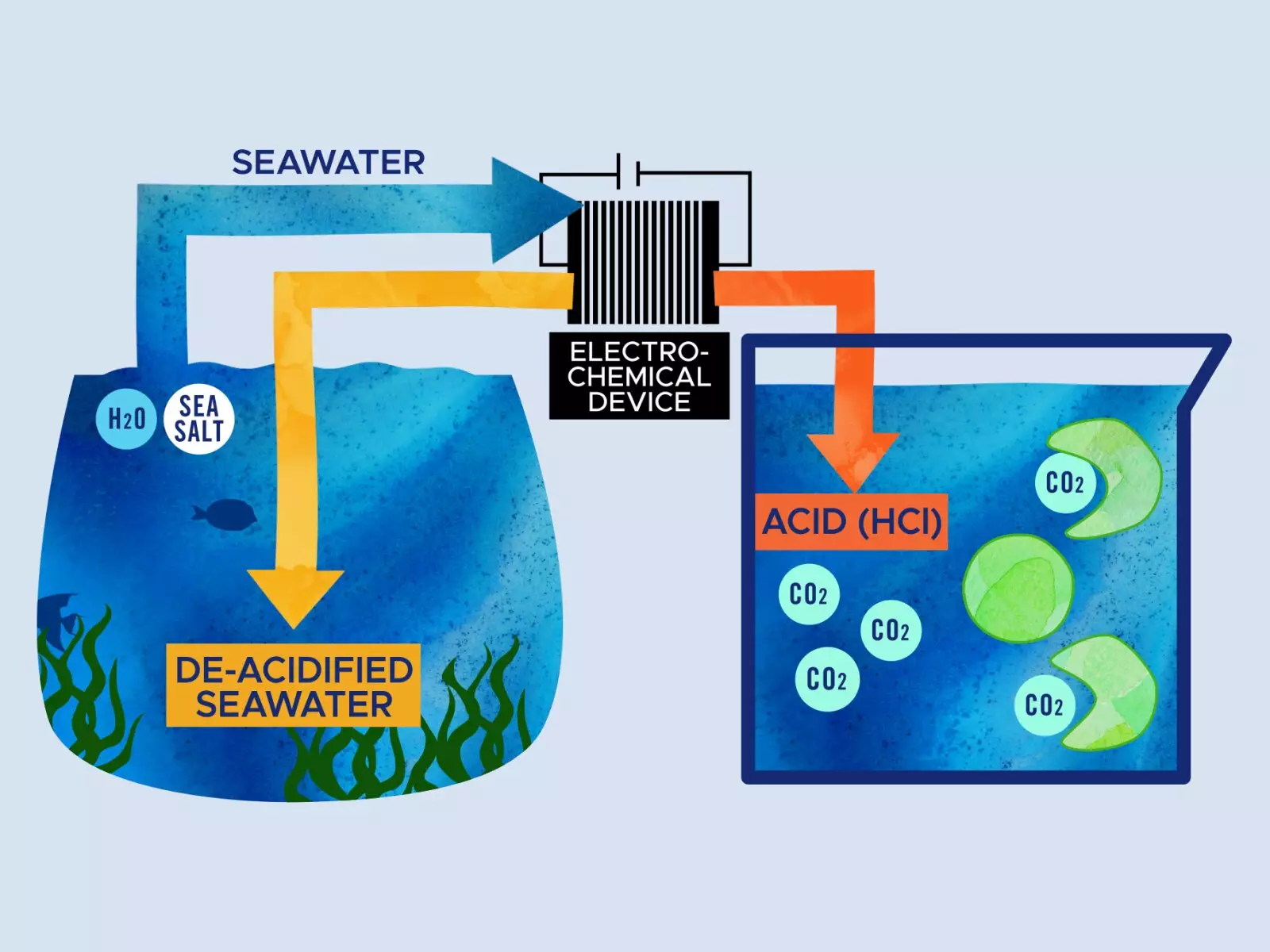Marine algae play a crucial role in our ecosystem, from producing oxygen to serving as food for marine life. However, the process of cultivating algae for commercial purposes, known as aquaculture, poses a significant challenge in terms of carbon neutrality. While algae cultivation has the potential to remove carbon dioxide from the atmosphere, the traditional methods of sourcing carbon dioxide from natural gas refineries result in significant emissions that offset any environmental benefits.
Researchers at the Department of Energy’s Pacific Northwest National Laboratory (PNNL) have proposed an innovative solution to make aquaculture more carbon neutral. By combining algae cultivation with marine carbon dioxide removal (mCDR), they have demonstrated a sustainable approach to address this issue. The acid byproduct generated from an electrochemical process used to increase ocean alkalinity can be utilized to enhance algae growth, thus accelerating the carbon capture process.
Ocean acidification, a consequence of increased carbon dioxide absorption by seawater, poses a serious threat to marine life. Scientists have developed an electrochemical technology called bipolar membrane electrodialysis to remove acidity from seawater. This process, akin to ocean alkalinity enhancement, aims to restore the natural alkalinity of seawater, thereby mitigating the harmful effects of ocean acidification.
Algae, with their efficient carbon-capturing capabilities, have emerged as a promising natural solution to carbon sequestration. Through photosynthesis, algae absorb carbon dioxide and produce oxygen, making them essential contributors to our ecosystem. Recent research has shown that by leveraging the carbon-eating power of algae, it is possible to enhance carbon capture efficiency in aquaculture settings.
The integration of electrochemical mCDR technology with aquaculture offers a sustainable pathway towards leveraging algae for carbon capture. By utilizing the acid byproduct to stimulate algae growth, researchers have demonstrated a novel approach to enhance the overall carbon dioxide removal process. This innovative solution not only benefits the aquaculture industry but also holds promise for producing eco-friendly plastics or biofuels in the future.
In the quest to combat climate change, embracing diverse and holistic solutions is key. The synergy between technological advancements and nature-based processes, as exemplified by the coupling of algae cultivation with marine carbon dioxide removal, showcases the potential for achieving carbon neutrality in aquaculture. By harnessing the power of marine algae, we can pave the way for a sustainable future and contribute to a cleaner, healthier planet.


Leave a Reply